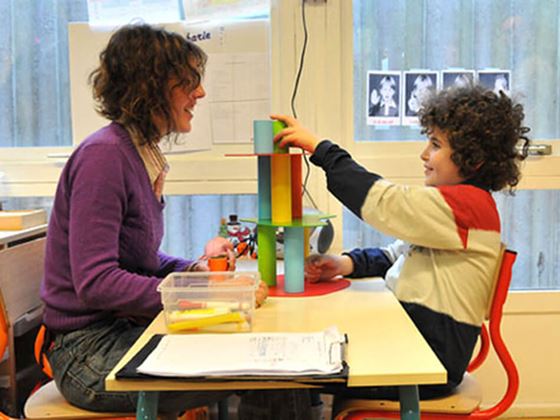Certificate in Autism
100% online or in Beverly, Mass.
-
Program Overview
Certificate in Autism (15 Credits)
This certificate program is designed for students who already have a master’s degree and are interested in courses specifically focused on autism spectrum disorders (ASD).
- 15-credit program perfect for working professionals
- State of the art training in autism
- Personal advising and assistance in professional development
- Small class sizes
- Consistent adjunct faculty with real-world experience
- In-depth coursework in ASD
- Affordable tuition

-
Curriculum
Curriculum Requirements - Total Credits Required: 15
Required Curriculum
-
AUT 527 - Introduction to Autism Spectrum Disorders (Cr: 3)
-
AUT 578 - Effective Collaboration Across Disciplines (Cr: 3)
Electives
Must choose 3:
-
ABA 512 - Verbal Behavior (Cr: 3)
-
ABA 523 - Intro to ABA and Psychiatric Disorders (Cr: 3)
-
ABA 524 - Variations and Applications of Functional Analysis Procedures (Cr: 3)
-
ABA 527 - ABA in Public School Special Education (Cr: 3)
-
AUT 537 - Developing Individualized Goals for Learners with Autism (Cr: 3)
-
AUT 540 - Adolescents and Adults with ASD: Transition and Meaningful Engagement (Cr: 3)
-
AUT 550 - Supervision, Training and Organizational Management in an Autism Service Provision Context (Cr: 3)
-
AUT 570 - Understanding and Remediating Communication Deficits in Learners with Autism (Cr: 3)
-
AUT 571 - Understanding and Remediating Social and Play Skill Deficits in Learners with Autism (Cr: 3)
-
AUT 574 - Evidence-Based Practice (Cr: 3)
-
ABA 522 - Treatment of Severely Challenging Behavior (Cr: 3)
Learning Outcomes
Upon completion of the program, students will:
- Critique alternative approaches to understanding behavior associated with ASD.
- Value all aspects of human behavior including private events.
- Interpret the learning, behavioral, communication, and social characteristics of individuals with autism.
- Design effective function-based treatments for challenging behavior based on state of the art ABA assessment techniques for individuals with autism.
- Support treatment decisions using existing empirical evidence.
- Design individual behavior treatments including behavior reduction and skill acquisition programming.
- Demonstrate knowledge of effective individualized curricular planning and effective behavior management.
- Differentiate levels of evidence for approaches within and outside of ABA.
- Weigh courses of action given clinical scenarios.
- Create systems for the provision of performance based feedback in supervision and training contexts.
View academic catalog and learning outcomes -
AUT 527 - Introduction to Autism Spectrum Disorders (Cr: 3)